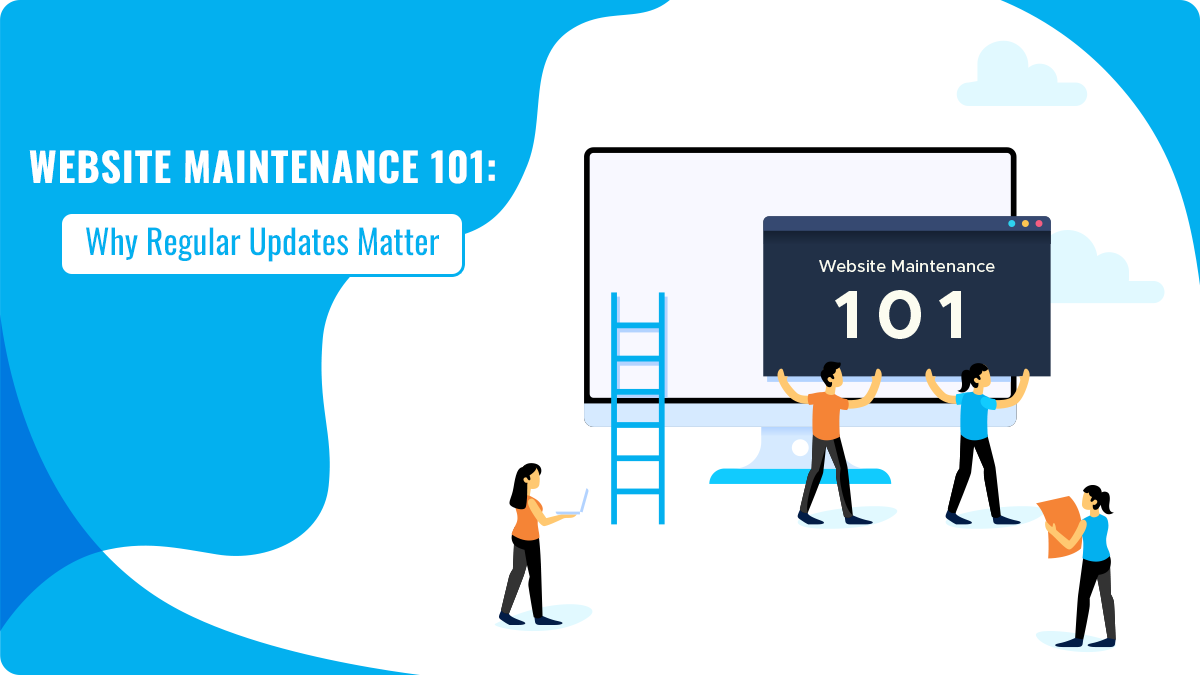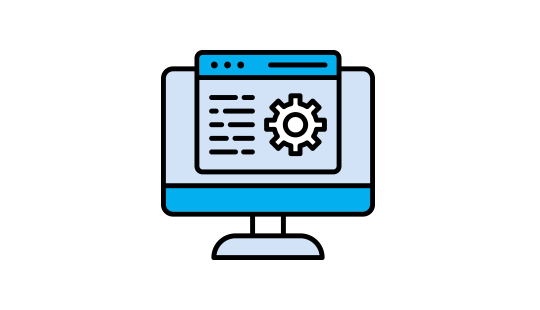In today’s digital-centric world, having an online presence is no longer optional—it’s essential for businesses and individuals alike. A website serves as the virtual face of a brand, offering a platform to showcase products, services, or personal endeavors to a global audience. It acts as a 24/7 storefront, enabling potential customers or visitors to learn about who you are, what you offer, and how you can meet their needs.
However, merely having a website isn’t enough to succeed in the competitive online landscape. Regular maintenance is equally crucial. Maintenance involves ongoing tasks such as updating software, monitoring performance metrics, fixing broken links, and enhancing security measures. These efforts ensure optimal website functionality, security, and user experience.
Regular maintenance fosters trust and credibility with visitors, demonstrating a commitment to quality and professionalism. It also helps enhance brand image and boosts search engine visibility, ultimately driving more traffic to the website.

First, let’s grasp the concept of website maintenance:
Website maintenance involves the ongoing effort to keep a website current and functioning seamlessly. Its primary goal is to ensure the website operates smoothly across various platforms and browsers.
Considering the content and any updates or enhancements introduced by third-party tools like Google Analytics or Facebook Pixel is crucial in determining the frequency of maintenance tasks.
Regular daily checks for errors are essential to preemptively address any issues before they impact visitors or clients, ensuring uninterrupted website performance.
Check out these compelling statistics on website maintenance that demand attention:
- A staggering 57% of customers refrain from recommending a business with a poorly designed mobile website.
- An overwhelming 85% of users expect a website to be as functional on mobile as it appears, emphasizing the importance of responsive web design.
- Speed is crucial, with 83% of users expecting websites to load within a mere three seconds.
Read more: Web Development Workshop: DIY Tips for Small Businesses
The Importance of Website Maintenance
- Security: One of the primary reasons for website maintenance is to enhance security. Websites are vulnerable to cyber threats such as hacking, malware, and data breaches. Regular updates to your website’s software, plugins, and security measures help protect it against these threats and ensure that sensitive information remains secure.
- Performance: A well-maintained website performs better in speed, reliability, and functionality. Regular updates to the content management system (CMS), themes, and plugins help optimize performance, reduce loading times, and ensure a seamless user experience. This is crucial for retaining visitors and improving search engine rankings.
- Compatibility: As technology evolves, so do web standards and browsers. Regular updates ensure that your website remains compatible with the latest browsers, devices, and operating systems. This prevents compatibility issues and ensures visitors can access your website across different platforms without disruptions.
- SEO (Search Engine Optimization): Search engines favor websites that are regularly updated with fresh content and adhere to best practices. Regular maintenance, including updating content, fixing broken links, and optimizing metadata, improves your website’s visibility and ranking in search engine results pages (SERPs), driving more organic traffic to your site.
- User Experience: A well-maintained website provides a positive user experience, essential for engaging visitors and encouraging them to explore further. Regular updates to design elements, navigation, and functionality enhance usability, accessibility, and overall satisfaction for visitors.
Why Regular Updates Matter
- Security Patches: Content management systems (CMS) such as WordPress, Joomla, and Drupal regularly release security patches to address vulnerabilities and protect websites from cyber threats. Failure to install these updates promptly leaves your website vulnerable to attacks, putting your data and reputation at risk.
- Bug Fixes: Software updates often include bug fixes and performance enhancements to address issues identified in previous versions. Ignoring these updates can lead to glitches, errors, and functionality issues on your website, resulting in a poor user experience and potential loss of visitors.
- New Features: Updates also introduce new features, functionalities, and improvements to your website. These enhancements help keep your website competitive, relevant, and aligned with the evolving needs and expectations of your audience.
- Compatibility: Regular updates ensure compatibility with the latest browsers, devices, and technologies. This prevents rendering issues, layout distortions, and functionality errors that can occur when visitors access your website using outdated software or hardware.
- Performance Optimization: Updates often include performance optimizations and efficiency improvements that enhance the speed, responsiveness, and overall performance of your website. This is critical for providing a seamless user experience and reducing bounce rates.
Read more: Innovative Web Development Trends: Staying Ahead in 2024
Best Practices for Website Maintenance
- Backup Your Website: Regularly back up your website to ensure that you can restore it in case of data loss, corruption, or security breaches.
- Update Software: Keep your CMS, themes, plugins, and other software up to date to ensure optimal performance, security, and compatibility.
- Monitor Website Health: Use website monitoring tools to track performance metrics, uptime, and security vulnerabilities. Address any issues promptly to prevent disruptions and maintain website health.
- Review Content Regularly: Regularly review and update website content to ensure accuracy, relevance, and freshness. Remove outdated or irrelevant content and add new content to keep visitors engaged and informed.
- Optimize for SEO: Implement SEO best practices such as keyword optimization, meta tags, and sitemap submission to improve visibility and ranking in search engine results.
- Test Website Functionality: Conduct regular testing to identify and fix any issues with website functionality, navigation, forms, and interactive elements.
- Enhance Security Measures: Implement security measures such as SSL certificates, firewalls, and malware scanning to protect your website against cyber threats.
In conclusion, website maintenance is essential for ensuring the security, performance, and user experience of your website. Regular updates play a crucial role in addressing security vulnerabilities, fixing bugs, introducing new features, and optimizing performance. By following best practices for website maintenance, you can protect your investment, attract more visitors, and achieve your online goals effectively.
We are Atlanta’s Most Acknowledged Web Development Company
Since 2011, Universal Stream Solution has led the web design and development revolution as the finest provider of web app development services.
We provide our clients throughout the world with the best web development services. To provide top-notch web development services, we have a talented staff of knowledgeable web developers who stay on top of the latest developments. If you want to embrace these trends, get in touch with our experts right away.
